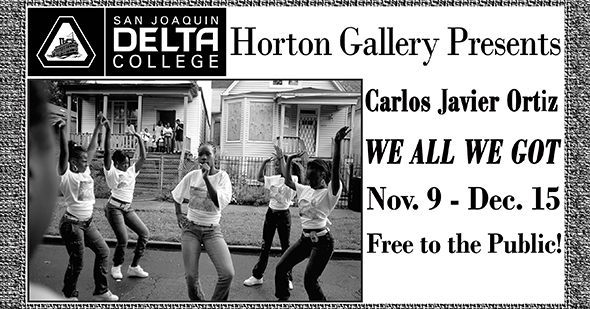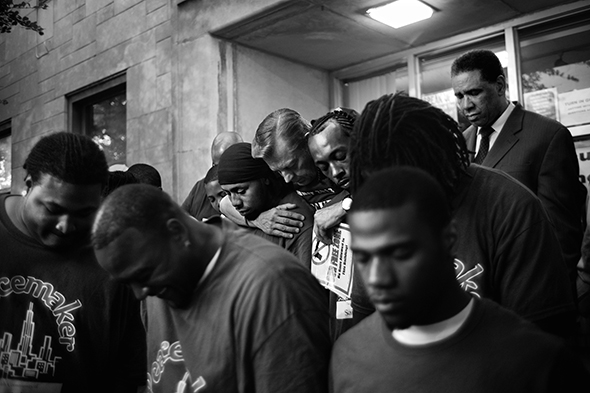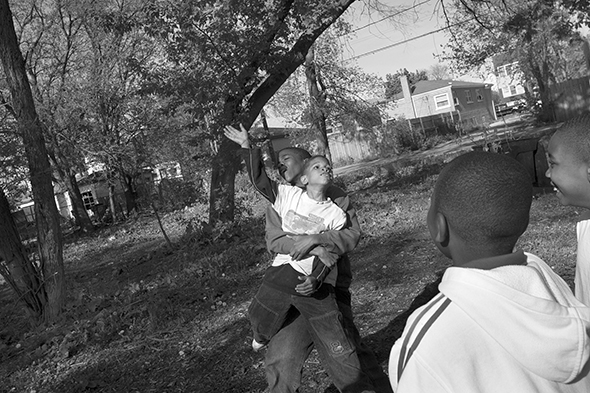
 5151 Pacific Avenue Stockton, CA 95207 |
Media Advisory |
For Immediate Release
10/27/2017
|
(Stockton, CA) San Joaquin Delta College's L.H. Horton Jr Gallery presents the work of photographer Carlos Javier Ortiz – We All We Got, November 9 - December 15, 2017.
Carlos Javier will discuss his work and screen two short films, We All We Got and A Thousand Midnights, during the Artist Talk on November 9th, 12:30 p.m. at Delta's North Forum. Join Carlos Javier for the Gallery Reception on Thursday, November 9th, from 5:00 to 7:00 P.M.
Carlos Javier Ortiz is a director, cinematographer and documentary photographer who focuses on urban life, gun violence, racism, poverty and marginalized communities. In 2016, Carlos received a Guggenheim Fellowship for film/video. His work has been exhibited nationally and internationally in a variety of venues including the Schomburg Center for Research in Black Culture; the Worcester Art Museum in Massachusetts; the International Museum of Photography and Film in Rochester, NY and the Library of Congress. In addition, his photos were used to illustrate Ta-Nehisi Coates' The Case for Reparations (2014) Atlantic Magazine.
His films We All We Got and A Thousand Midnights have screened at the Tribeca Film Festival, Los Angeles International Film Festival, AFI Film Festival, PBS Online Film Festival and Art Basel, Black and Blue, Stadtkino Basel Cinema. Carlos Javier has taught at Northwestern University and the University of California, Berkeley. He lives in Chicago and Oakland with his wife and frequent collaborator, Tina K. Sacks, a professor of social welfare at the University of California, Berkeley.
We All We Got explores the consequences and devastation of youth violence in contemporary America from 2006 to 2013, through a mix of powerful photographs, incisive essays and moving letters from diverse individuals affected by this perennial scourge.
Carlos Javier Ortiz’s work provides an avenue for knowing these children and their families. This work is not the end of the conversation about youth violence and society’s complicity in it, but rather the beginning. The terror in the eyes of grieving children and inconsolable mothers only allows the viewer to begin to understand the toll that this reality takes on the children who live it.
The stories take place in Chicago and Philadelphia. By repeatedly returning to the same neighborhoods over the course of eight years, Ortiz shows the plight of the communities with which he has built a deep connection. You see abandoned buildings, memorials for victims, segregation, graffiti, juvenile incarceration and other constant reminders of the outcomes of violence on young people and their surroundings.
But through all the heartbreak, you also see the incredible resilience of the individuals left behind. And where there is terror, there is also a glimpse of the innocence that remains and a tiny glimmer of hope.
For further information contact Jan Marlese, Horton Gallery Director
jmarlese@deltacollege.edu, 209-954-5507.


